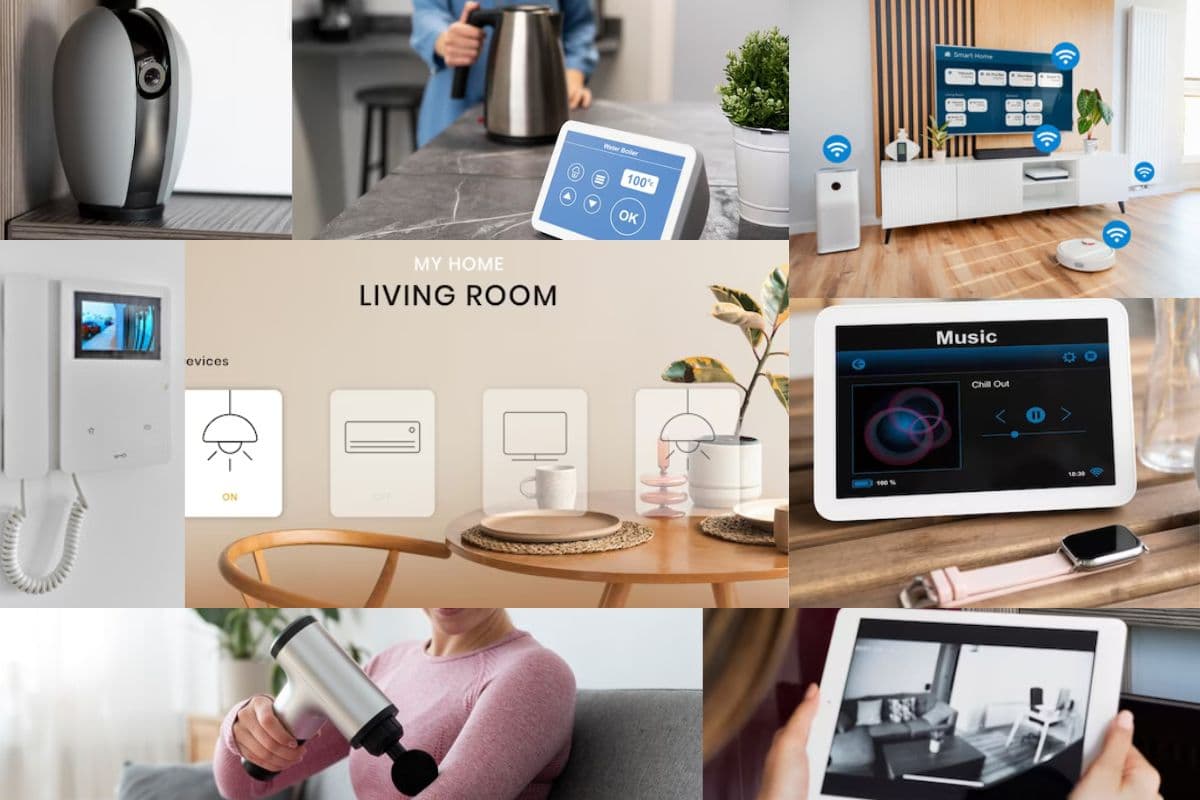Smart home devices have evolved as the cornerstone of modern life in the age of connection. This thorough blog takes you on a tour through the wonderful world of technology, covering its numerous gadgets, benefits, difficulties, and potential future.
1. Introduction
Welcome to the future of home life with Smart Home Devices. These cutting-edge technologies easily blend into your daily life, providing unrivaled convenience, efficiency, and security. From clever thermostats that learn your preferences to security cameras that give peace of mind, smart home technologies are changing the way we interact with our living environments. Join the revolution in which your home becomes a connected hub of innovation, simplifying daily activities and prioritizing your comfort and safety like never before. With these transformational products, you may enter a smarter, more intuitive home experience.
2. Popular Smart Home Devices
Popular smart home technologies have transformed daily life by providing seamless integration and ease. These products, which range from intelligent thermostats like Nest to voice-activated assistants like Amazon Echo, improve comfort, security, and energy economy. Remote control is provided by smart cameras, lighting, and locks, while smart speakers serve as primary hubs for home automation. The popularity of these gadgets reflects the rising demand for networked, tech-savvy houses that simplify and improve our lifestyles as the Internet of Things (IoT) ecosystem evolves.
3. Benefits of Smart Home Technology
Examine the benefits of implementing smart home technologies. Increased energy efficiency, improved security, and the convenience of remote control are just a few of the enticing advantages of home transformation.
4. Creating a Connected Ecosystem
Recognize the significance of establishing a unified smart home ecosystem. Compatibility and smooth integration among devices guarantee that homeowners have a uniform and user-friendly experience.
5. Smart Home Security Solutions
Investigate the function of smart home gadgets in improving security. Smart locks, video doorbells, and surveillance systems provide advanced capabilities that enable homeowners to watch and control their homes in real time.
6. Energy Efficiency with Smart Devices
Investigate how smart home gadgets help with energy efficiency. These technologies, which range from smart thermostats that optimize heating and cooling to energy-monitoring gadgets, encourage sustainability and cost savings.
7. Challenges in Smart Home Adoption
Recognize the difficulties connected with the broad deployment of smart home technologies. Concerns about privacy, interoperability, and the learning curve for consumers are all important considerations in the road toward a smarter home.
8. Overcoming Privacy Concerns
Consider the critical problem of privacy in smart homes. Learn how manufacturers and users may work together to maintain data security and individual privacy in smart home environments.
9. Future Trends in Smart Home Technology
Examine the smart home devices of the future. Expect AI-driven automation, improved connection, and the incorporation of 5G technology to shape the next stage of smart home advancement.
10. Voice Control and Smart Assistants
Investigate the role of voice control and intelligent assistants in smart homes. These technologies are changing the way we interact with our homes, from controlling gadgets with voice commands to harnessing AI for tailored experiences.
11. The Role of Smart Home Devices in Health and Wellness
Investigate how smart home gadgets help with health and wellbeing. From smart workout equipment to air quality monitoring, these technologies enable people to prioritize their health from the comfort of their own homes.
12. Smart Home Devices for Aging in Place
Learn how smart technologies may help the elderly. Seniors may preserve their freedom and safety using assistive technology, health monitoring gadgets, and home automation systems.
13. The Rise of DIY Smart Home Systems
Investigate the rising popularity of do-it-yourself (DIY) smart home solutions. Affordable and simple-to-use alternatives enable homeowners to design and modify their smart home ecosystems without the need for expert installation.
14. Integrating Smart Home Devices in Real Estate
Understand how smart home technology affects real estate. Smart home features increase property value and attract tech-savvy homeowners, resulting in a change in the real estate environment.
15. Conclusion: A Smarter, Connected Future
Finally, the era of smart homes has arrived, promising a future in which our living environments are not only intelligent but also adaptive to our requirements. As technology advances, they will surely play an important part in determining how we experience and interact with our houses.
